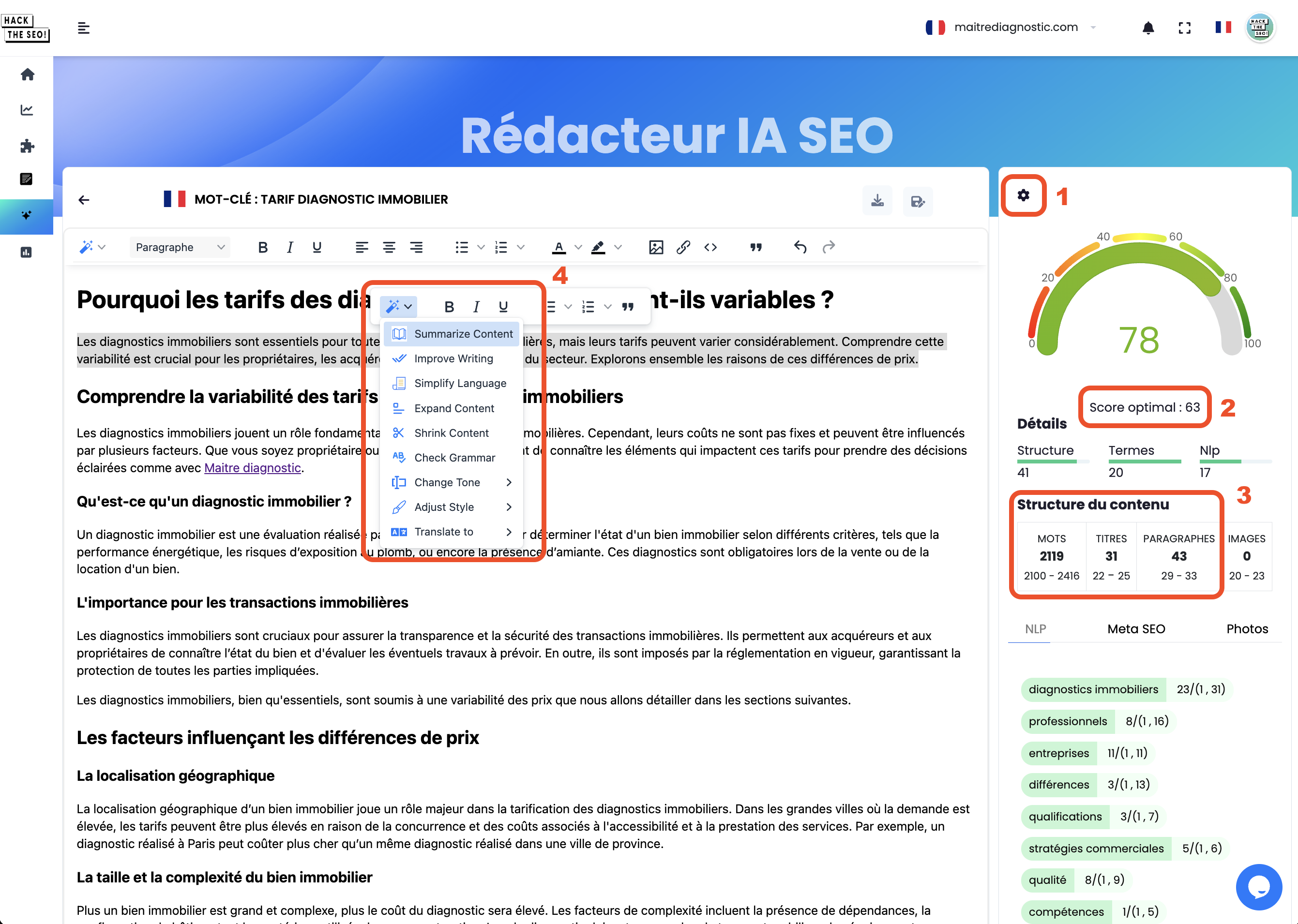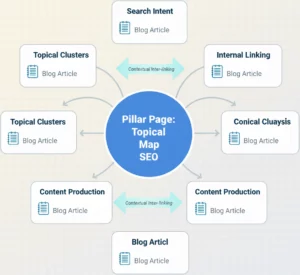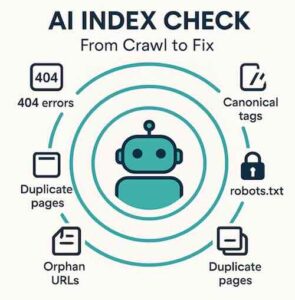
Content writing is a crucial component of digital marketing. With the advent of AI Writers, the automation of content creation is reaching new heights. Artificial intelligence is transforming the writing process, but where exactly is the data analyzed and processed before being converted into relevant content? Let’s explore this crucial question to understand the ongoing revolution.
Table of Contents
ToggleIntroduction to the Concept of AI Writers and Their Usefulness
An AI Writer is an artificial intelligence system designed to generate text. Its usefulness in the field of SEO and web content writing is undeniable, allowing businesses and marketing teams to produce quality content on a large scale. But what is the process at work behind the scenes, and how does this revolutionary technology manipulate data?
The Importance of Data Processing Location
Understanding where and how data is processed by an AI Writer is essential. The location of data processing can affect compliance with privacy standards, the customization of generated content, and the speed of content creation. Welcome to the fascinating world of data processing by AI before writing.

Definition and Functioning of an AI Writer
An AI Writer uses cutting-edge technologies to simulate the human writing process. Through artificial intelligence, it analyzes data related to a specific topic and generates coherent and relevant texts. The processing of this data is a fundamental step as it determines the AI’s understanding of the topic and, consequently, the quality of the created content.
Underlying Technologies: From Algorithms to Machine Learning
Content creation via an AI Writer relies on complex technologies. The involved algorithms include Machine Learning, which allows the AI to adapt and refine its responses, and Natural Language Processing (NLP), which helps the AI understand and generate human language. The data processing typically occurs on secure cloud servers, enabling teams to access a powerful and scalable platform.

The Initial Data Gathering
At the heart of how an AI Writer works is the initial data gathering. This data can come from various sources and is essential for informing the AI about the writing topic. From selecting relevant keywords to analyzing the competition, the initial data shapes the direction and accuracy of the content the AI Writer will generate.
The Role of Machine Learning and Natural Language Processing
Based on the gathered data, Machine Learning and NLP intervene to process and interpret this information. They enable the AI Writer to grasp context, understand language nuances, and structure sentences logically and fluently. Thus, the AI can produce content that appears natural and human-like, despite being artificially generated.
Integration of User Feedback and Continuous Improvement
User feedback plays a crucial role in refining the content produced by the AI Writer. Suggestions and corrections provided by clients or human reviewers allow the AI to improve continuously, thereby increasing the quality and relevance of the content over time.

Semantic and Contextual Analysis of Information
To ensure content relevance, the AI Writer performs a semantic and contextual analysis of the information. This analysis allows it to understand the subject in its entirety and grasp the subtleties of the user’s request. As a result, the AI Writer can customize the content to precisely meet the client’s needs.
Content Personalization According to User Request
The ability of the AI Writer to personalize content is a considerable advantage. Based on past and present data, the AI can adjust the style, tone, and format according to the client’s preferences or the main characteristics of the business. This personalization capability makes each piece of content unique and targeted.

The Importance of Input Data Quality
The success of the AI Writer relies on the quality of the data it receives. Accurate and well-structured data enables the AI to produce higher-quality content. Therefore, data collection and sorting upfront are crucial steps in the AI-assisted writing process.

Key Steps in Data Processing by an AI Writer
Before the actual writing, foundational work is carried out by the AI Writer. This work involves several key steps aimed at transforming raw data into readable and engaging content.
Data Preprocessing: Cleaning and Normalization
Data preprocessing, including cleaning and normalization, is the step preceding content creation. Through this process, the AI Writer eliminates errors and inconsistencies that could compromise the final content’s quality.
Content Generation: Model-Based Text Creation
Once the data is preprocessed, the content generation phase begins. The AI Writer relies on models and algorithms to construct sentences and paragraphs. The result is a draft text that will then be refined.
Here is an example of text generated by Hack The Seo, one of the best AI Writing solutions.

Post-Processing: Verification and Adjustments of Generated Content
After generation, the content undergoes a post-processing phase. During this phase, the AI, or sometimes a human editor, performs verifications and adjustments to ensure that the content is not only grammatically correct but also engaging and faithful to the client’s directives.
Impact of Data Processing Location
The location where data is processed by the AI Redactor has significant implications for various aspects of content creation.
Jurisdictional Issues and Compliance with Regulations
Data is subject to the laws of the country where it is stored and processed, meaning jurisdiction influences compliance with data protection regulations. Therefore, businesses must pay attention to the location of their AI Writer’s servers.
Latency and Performance Depending on Server Location
Performance and latency vary depending on the server location. Servers closer to users ensure a faster AI Writer response and a better overall experience.
Considerations on Data Security and Confidentiality
Regarding data security and confidentiality, businesses must ensure that the AI assisted Writer they use follows best practices to protect processed information from unauthorized access or use.
Differences Between AI Writers
Understanding that not all AI Writers are created equal is crucial for selecting the one that best meets your needs. For example, Anyword features may differ from those of Writesonic or Grammarly, both in data processing and writing capabilities.

Varied Approaches to Data Processing
Different AI Writers adopt varied approaches to data processing. Platforms like WriterZen or ChatGPT emphasize features unique to their technology, influencing how data is used to generate content.
Adapting to Different Types of Content: Articles, Blogs, Ad Copies
Whether for blog articles, ad copies, or social media posts, each AI Writer is designed to excel in certain types of content. Understanding these nuances is crucial to making the most of these tools’ capabilities.
Use Cases and Target Sectors
AI Redactors can be specifically adapted to certain industries or use cases. For instance, LongShot might be a better choice for long-form articles, while Wordtune could be preferred for fine-tuning short and impactful texts.
FAQ
Let’s conclude with some frequently asked questions about data processing by an AI assisted Writer and its importance in creating quality content.

How Does an AI Writer Ensure the Quality of Written Content ?
An AI Writer ensures content quality through advanced algorithms, thorough data analysis, and continuous learning capabilities. User feedback helps to adjust and improve the generated results.
Can Data Processing by an AI Writer Be Customized ?
Yes, many AI assisted Writers allow for customizing data processing to meet specific user needs, producing tailored content.
What Are the Challenges of Multilingual Data Processing ?
Multilingual processing is complex due to the nuances and subtleties of different languages. However, the constant evolution of NLP technologies is improving the accuracy of these tools in this area.
Will AI Writers Replace Human Writers ?
It is unlikely that AI Writers will completely replace human writers, as they still require human intervention for creative finishing and the editorial quality of automatically generated content.

AI Writers are revolutionizing content creation, but their effectiveness is directly tied to how they process data. Businesses must be aware of the technical and legal aspects, while emphasizing that human intervention remains indispensable to ensure the final quality of content. The future prospects of AI Writers promise even deeper integration into content strategies and SEO.
For those looking to explore more about AI Writers, there are many other interesting features. By diving into testimonials and case studies, one can grasp the scope of these powerful tools in a SEO strategy and their impact on the work of writers.

Eric Ibanez
Co-fondateur de Hack The SEO
Eric Ibanez a créé Hack The SEO et accompagne des stratégies SEO orientées croissance. Il est aussi co-auteur du livre SEO pour booster sa croissance, publié chez Dunod.
Suggested Articles




